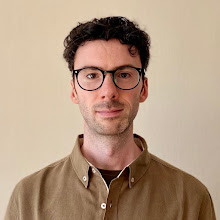Al momento tuttavia godiamoci questi due gustosi estratti, il primo in tema con gli ultimi post del blog (apparentemente, oggigiorno, non si scappa dal Napoleon):
As Kubrick's next film is to be about Napoleon, I find myself now writing a novel about Napoleon. God knows why I am doing this; there is no guarantee that he will use it, or even that the book will be published. Just the fascination of what's difficult, or an expression of masochism that lies in all authors, or a certain pride in attacking the impossible. My Napoleon novel will be very brief, and to write a brief novel on Napoleon is far more difficult than to write War and Peace. But you can take this present labour as a product of the Orange film, and by God it is a labour.Burgess concluderà il suo romanzo, Napoleon Symphony, e lo darà alle stampe nel 1974, ma non lo vedrà neppure sfiorato da Kubrick: l'unico riferimento a Burgess tra il carteggio del Napoleon recentemente esaminato è lo sbrigativo appunto "Burgess – how do I read his novel" inserito nelle bozze del contratto con la Warner Bros.
Il secondo estratto degno di nota riguarda l'annoso tema dell'influenza dell'arte sulla vita, sotto l'ombra sempre incombente della censura, qui sapientemente preso in giro da Burgess che in un lampo di prescienza azzecca anche la previsione sulle future polemiche sulla delinquenza giovanile.
All works of art are dangerous. My little son tried to fly after seeing Disney’s Peter Pan. I grabbed his legs just as he was about to take off from a fourth story window. A man in New York State sacrificed 67 infants to the God of Jacob; he just loved the Old Testament. A boy in Oklahoma stabbed his mother’s second husband after seeing Hamlet. A man in Kansas City copulated with his wife after reading Lady Chatterley’s Lover. After seeing A Clockwork Orange, a lot of boys will take up rape and pillage and even murder – The point is, I suppose, that human beings are good and innocent before they come into contact with works of art. Therefore all art should he banned. Hitler would never have dreamed of world conquest if he hadn’t read Nietzsche in the Reader’s Digest. The excesses of Robespierre stemmed from reading Rousseau. Even music is dangerous. The works of Delius have led more than one adolescent to suicide. Wagner’s Tristan and Isolde used to promote crafty masturbation in the opera house. And look what Beethoven’s Ninth Symphony does to Alex in A Clockwork Orange. If I were President of the United States, I should at once enact a total prohibition of films, plays, books and music. My book intended to be a delicious dream, not a nightmare of terror, beauty and concupiscence. Burn films – they make marvellous bonfires. Burn books. Burn this issue of Rolling Stone.Yeah, burn this blog! Burn the Internet!
 Juice from a Clockwork Orange, Anthony Burgess, Rolling Stone 08.06.1972
Juice from a Clockwork Orange, Anthony Burgess, Rolling Stone 08.06.1972


Nessun commento:
Posta un commento